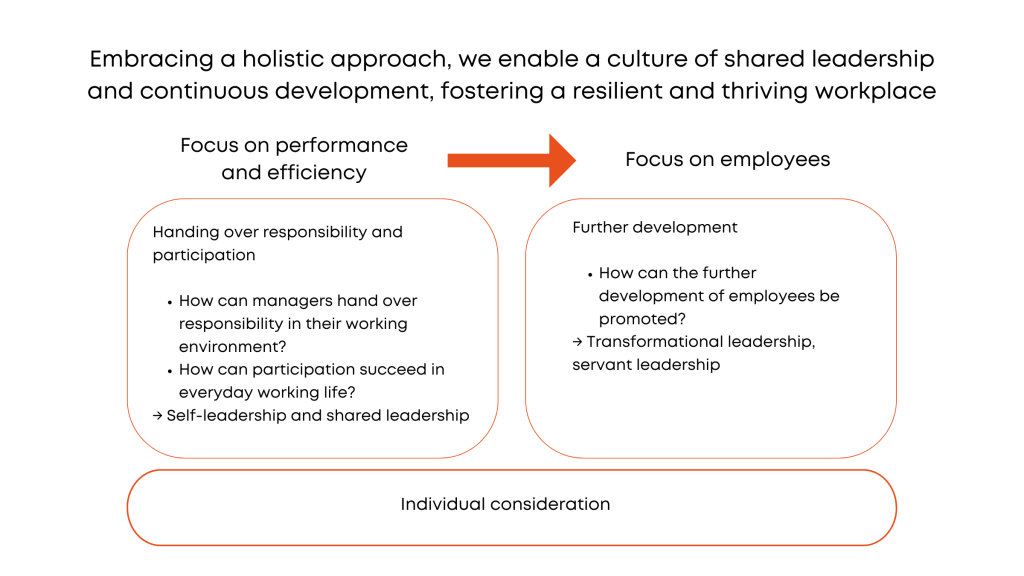In the month of april, we presented the key findings of our study in a webinar hosted by Arno Luginbühl. In this blog, you’ll find the most important insights summarized. Ninety leaders shared their qualitative experiences, while nine quantitative interviews offered statistical support to the findings on the topic of leading through change.
Leaders are facing a range of challenges, both internal and external to their organizations.
Internally, maintaining a
- work-life balance,
- guiding employees through the maze of digitalization,
- managing resistance during change,
- fostering a sense of responsibility in their teams,
…were identified as main challenges.
Externally,
- the expectations of customers and stakeholders,
- find suitable employees for the team
- dealing with employees during change processes
- and constant adaption of processes
…pose significant challenges.

To navigate these challenges effectively, leaders are relying on certain behaviors and strategies. Empathetically supporting their teams by addressing employees‘ demands, offering different perspectives on issues, and ensuring structured onboarding for newcomers are seen as crucial elements. Equally, the study underlines the importance of continuous employee training, welcoming lateral entrants, and experimenting with innovative pilot projects for further development.
A notable strategy is the shift from a performance and efficiency-focused approach to one that emphasizes employee development. This includes embracing transformational and servant leadership styles, which prioritize the individual strengths and growth of each team member.

As practical measures, it is recommended that leaders:
- Empower Employees: Actively seek input and delegate topic-specific responsibilities to build a resilient support team.
- Foster Development: Promote continuous learning and trial new approaches through pilot projects to harness the creative potential of the team.
- Encourage Self-Leadership: Leaders should manage their workload and create spaces for uninterrupted strategic thinking.

To wrap it up, the study shows that being a good leader today means doing three big things:
- Giving team members their own tasks so they feel important and can make decisions.
- Making sure everyone gets to pitch in and share their ideas.
- Leading in a way that shows you can take charge when needed but also work well with others.
For more information and for a deeper dive into the insights of our leadership studies, please feel free to reach out. We are dedicated to advancing leadership practices that meet the challenges of today’s world.
At Kitoko People, we help to understand, develop and retain the future workforce. Interested? Contact us on +41 79 575 44 08 or subscribe to our newsletter.







